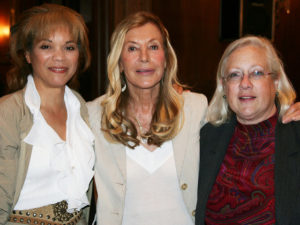
The first case is Lavan v. City of Los Angeles. I reported last December that this case seemed to be nearing settlement, and there was more news on this in March. Well, yesterday the Council approved Motion 16-0397, which authorizes the payment of $322,000 to Carol Sobel in legal fees and $500,000 for other purposes which aren’t clear from the motion. Nothing has hit PACER yet, so I don’t know how to get the rest of the story, but you’ll see it here as soon as I get some. You may want to subscribe to the Council file to keep up to date.
The second case is really interesting, and I haven’t written on it before. Evidently, in 2005 the Central City East Association began sponsoring tours of Skid Row for “…public officials, law enforcement, members of the judiciary, students, academics, local business owners, social service providers, and the media” so they can “…see for themselves and learn about the challenges, not through a windshield, but from the experience of walking through [Skid Row] and interacting with social service representatives, police, residents and business owners.”1 (Here is the 9th Circuit opinion on which this summary is based).
But what’s the chance that the CCEA is going to present an unbiased opinion? Not much, according to CPR for Skid Row,2 Pete White of the Los Angeles Community Action Network, and Hamid Khan of Stop LAPD Spying:3
Members of CPR, in contrast, believe that the Walks “support and promote the criminalization of homelessness and poverty and [are] comprised only of those from outside of [the Skid Row] community.” According to CPR, the Walks are “dominated by police officers and representatives of the business community,” which are “exactly the same institutions that are promoting the unprecedented levels of police presence, citations and arrests in Skid Row that have made many homeless and poor residents less safe and/or less stable.” The Walks “do not represent the interests of the low-income community, nor [CPR’s] vision for public safety.”4
So CPR for Skid Row organized protests of the CCEA walks, and on July 6, 2011, after allegedly yelling at a participant in the CCEA tour, Pete White was arrested for violating California penal code §403, which states:
Every person who, without authority of law, willfully disturbs or breaks up any assembly or meeting that is not unlawful in its character, other than an assembly or meeting referred to in Section 302 of the Penal Code or Section 18340 of the Elections Code, is guilty of a misdemeanor.
Carol Sobel argued in Federal District Court that, by arresting him for violating this law during a protest, the City of LA had violated Pete White’s civil rights because (a) this law is unconstitutionally vague, and (b) also it didn’t apply to White in this case. The District Court found for the City of LA (and thus that White’s arrest was justified). The Ninth Circuit agreed with the lower court that the law was not unconstitutionally vague, but they overturned the District Court’s finding that the law did apply to White in this particular case. This is a clear victory for the plaintiffs, who could have won on either theory by itself.
So yesterday, the Council approved a payout of $125,394 in attorney’s fees to Carol Sobel. According to the Times this was purely for her work on the appeal, as the City has already paid her $225,000 for her work on the actual case.
Maybe someday the City of LA will realize that it’s not only morally right to refrain from abusing the homeless and their defenders, but that it’s going to be very much cheaper in the long run. Thus is demonstrated yet again the prescience of Mike Bonin’s warning that if the City doesn’t mend its wicked ways, “[w]e may as well open up the keys to reserve funds to Carol Sobel.” And she’s earned the money, too, but wouldn’t it be better to spend it on something positive?
Image of Connie Rice, Ramona Ripston, and Carol Sobel in 2009 is released under the CC BY-NC-ND 2.0 and we got it from Flickr.
- That’s the Ninth Circuit opinion summarizing and/or quoting the position of the CCEA. It’s not to be taken for unqualified truth by any means.
- A protest group that I haven’t heard of outside the context of this case; the opinion calls it “an unincorporated association.”
- Formed after the events being recounted here.
- Again, this is the Court’s summary of CPR for Skid Row’s point of view.
